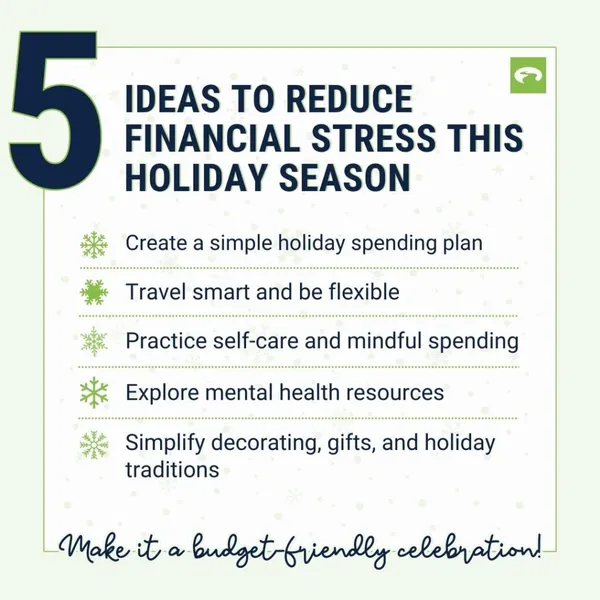Dreaming about your next vacation? No matter if it is a sun-soaked beach retreat, a nature trekking experience, or a cultural city break, early planning is the key to a successful holiday experience free of tension and worry. Probably the greatest misstep of visitors is not making a proper budget, and because of that, they overspend, become under pressure, or even end up canceling their trip.
The good news? Holiday budgeting does not have to be complicated. With the right strategy, you can have your holiday without overspending. Here are five tips to save and plan for your dream holiday with ease.
Start Saving Early
The sooner you begin saving, the less difficult it will be to pay for your holiday without hurting your finances. It is best to start saving six months to a year in advance of your trip, depending on the location and the budget estimate. This is how early savings can help you:
- Set a Goal: Establish the approximate cost of your trip, covering flights, lodging, meals, activities, and contingency funds.
- Make a Savings Plan: Divide your objective into weekly or monthly saving amounts. Suppose your vacation is going to cost you $2,000, and you have 10 months available for saving; you will need to save $200 every month.
- Utilize a Budgeting App: Applications such as Mint, YNAB (You Need a Budget), or TravelSpend allow you to monitor your savings process and control expenditures effectively.
- Trim Excess Expenses: Forgo the daily $5 latte or eat dinner at home instead of going out to eat. Minor sacrifices today equal significant savings later.
Travel Smart: Go Local & Off-Peak
While international vacations can be exciting, they often come with hefty price tags. Consider exploring local destinations instead. You might be surprised by the hidden gems in your own country or nearby cities that offer incredible experiences without the high costs.
Additionally, traveling during the off-peak season can save you hundreds, if not thousands, of dollars. Here is why:
- Lower Airfare & Accommodation Costs: Flights and hotels tend to be significantly cheaper during off-peak seasons.
- Less Crowded Attractions: You will avoid the tourist rush and enjoy a more relaxed experience.
- Better Deals & Discounts: Restaurants, tour operators, and even local markets often offer discounts to attract visitors during slower periods.
To get the best off-season bargains, utilize flight comparison sites such as Google Flights, Skyscanner, or Kayak, and plan flexible travel dates for even greater savings.
Create a Dedicated Holiday Bank Account
One of the most effective ways to remain within your holiday budget is to save your money in a separate account from your day-to-day account. If your travel money is combined with your daily spending money, it is simpler to tap into it for non-travel expenses.
Here is how to do it successfully:
- Select a High-Yield Savings Account: Find an account that has competitive interest rates so your money will increase over time.
- Set Up Automatic Transfers: Arrange to have automatic transfers from your principal account to your holiday savings account on every payday. Make this a fixed expenditure, similar to rent or utility bills.
- Use a “No-Touch” Policy: Make sure you do not withdraw money from this account unless it is for travel-specific expenses.
Compare Prices for the Best Bargains
Do not accept the first price you come across! Be it flights, accommodations, or tour packages, compare prices to get the best bargains.
- Compare Flights Across Various Sites: Sites such as Expedia, Momondo, and Hopper can assist you in finding the lowest airfare.
- Look for Alternative Accommodation: Rather than expensive hotels, look for affordable alternatives such as Airbnb, hostels, or vacation rentals. You could even opt for house-swapping or couchsurfing for an extremely budget-friendly stay.
- Search for Package Deals: At times, booking flights and accommodations together through a travel package can prove to be cheaper than booking them individually.
Join airline email newsletters and travel deal websites to get notified about sales and flash sales. Booking at the right time—typically three to six months ahead of time—can also ensure that you get cheaper prices.
Pay Cash Instead of Credit
One of the simplest ways of overspending on vacation is by overusing credit cards. Although convenient, they have high interest charges and surprise fees, particularly if used abroad.
Instead, keep these tips in mind to control your travel money wisely:
- Withdraw a Fixed Amount in Cash: Having cash handy can keep you within your budget and prevent you from overspending.
- Use a Prepaid Travel Card: If you do not want to carry excessive cash, use a prepaid travel card, where you can deposit money and spend up to your limit.
- Debit Over Credit: If you would like to use a debit card, use one that is connected to your holiday savings account. This ensures you can spend only what you have saved and not incur unnecessary debt.
Use a credit card for emergencies only, such as unplanned medical bills or last-minute flight cancellations. If you have to use one, use one with minimal foreign transaction fees and pay off the balance as quickly as possible.
Final Thoughts
Holiday budgeting does not have to sacrifice all the fun out of your getaway—it just requires being frugal with your expenses. Planning ahead, strategically saving, and cost-conscious decisions will allow you to have a hassle-free holiday without financial regret.
Establish your travel aspiration, start a new savings account, and start planning your fantasy destination. With self-discipline and the correct strategy, your next vacation may be the most relaxing (and affordable) trip you have ever taken.

